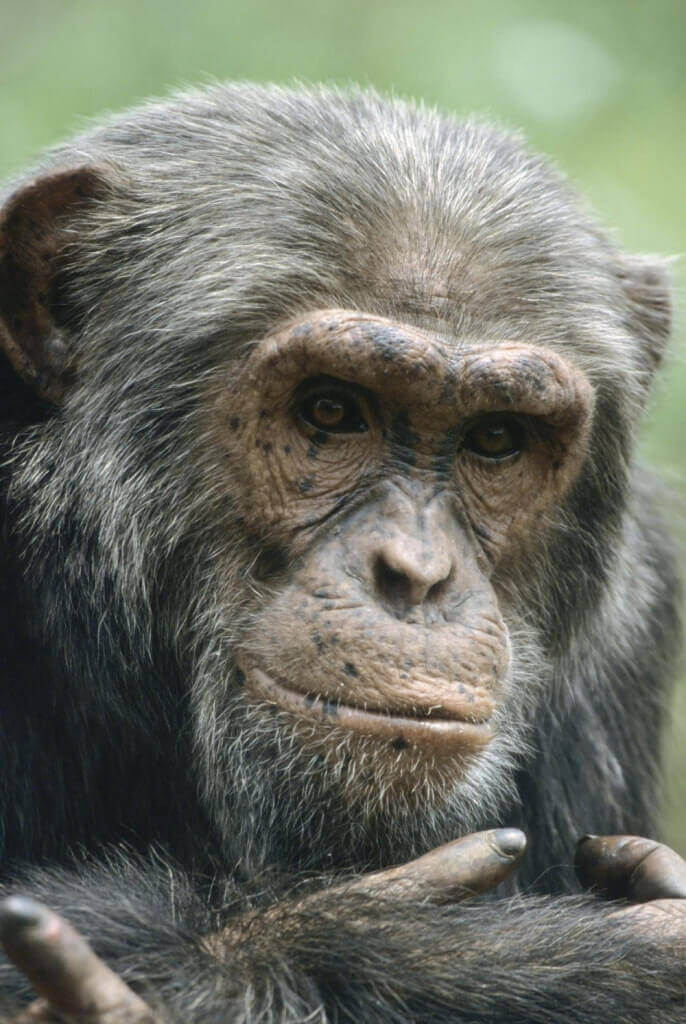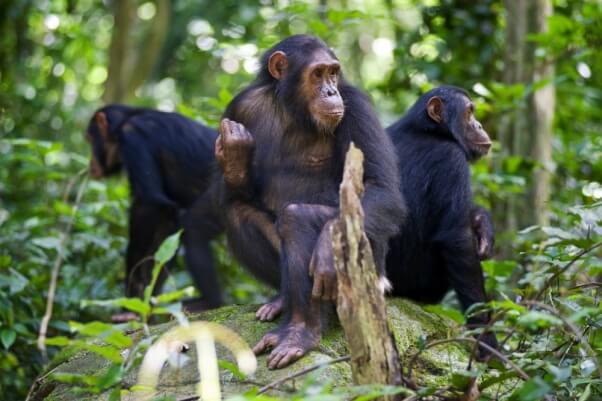Why You Won’t See Chimpanzees in Any Super Bowl Ads
Super Bowl ads make us laugh, make us cry, and sometimes even make us shake our heads in confusion. But this year, for the fourth year in a row, the ads will all have one remarkable thing in common: There are no chimpanzees featured in the commercials. PETA has worked hard to make the use of great apes in Super Bowl ads a taboo.
Lessening demand for great-ape “actors” means that there is an end in sight to the entertainment industry’s abuse and neglect of chimpanzees.
Chimpanzees who are used for entertainment are removed from their highly protective mothers shortly after birth. The infants typically develop neurotic and sometimes self-injurious behavior as a result of the emotional trauma. Investigations have revealed that physical abuse of chimpanzees during training is standard practice in the entertainment industry. The “smile” so often exhibited by performing chimpanzees is actually a grimace of fear.

It wasn’t so long ago that great apes were routinely seen on television and in movies. The horrific abuse endured by chimpanzee “actors” was first exposed by primatologist Sarah Baeckler in 2003, when she went undercover at a facility that trained chimpanzees for use in film and TV. During the 2005 Super Bowl, CareerBuilder launched a series of commercials featuring chimpanzees dressed as office workers, and PETA began an aggressive campaign against the company.
Over the next several years, the campaign to stop this practice heated up. In 2008, PETA worked with Anjelica Huston to release a powerful video calling for an end to the use of great apes in show business. Soon after, the Ad Council declared that it no longer supported the use of chimpanzees and other great apes in advertisements.
Researchers also began looking at how the use of chimpanzees in ads affects public perception of these endangered animals. Studies have found that the inaccurate portrayal of chimpanzees in media seriously hindered conservation efforts and also increased the demand for chimpanzees, who can be dangerous, as “pets.”
Today, the majority of ad agencies around the world, including DDB, BBDO, Leo Burnett, McCann Erickson, TBWA, J. Walter Thompson, and Y&R, have signed PETA’s Great Ape Humane Pledge, and everyone from Nike to Frontier Airlines to AT&T have pulled ads featuring apes. Others, like Dodge and Robitussin, switched from using real apes to computer-generated ones after hearing from PETA. Even CareerBuilder, which once shamelessly led the charge in this cruel exploitation, has moved in another direction. Most of the suppliers of chimpanzees and orangutans for ads have gotten out of the business, and it is only a matter of time before the rest follow suit.
Now, everyone can enjoy the big game!


